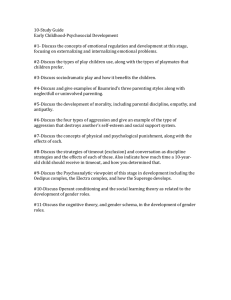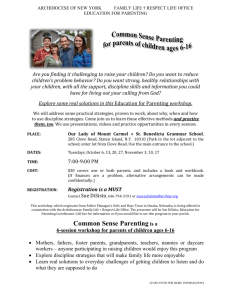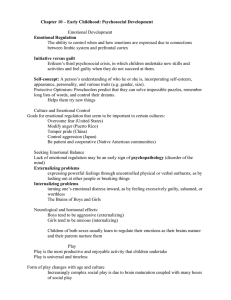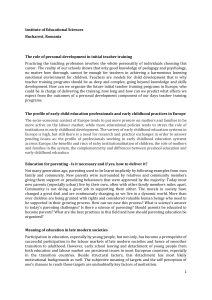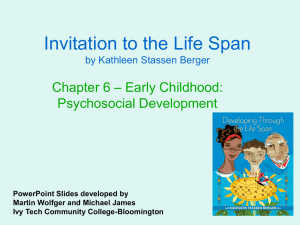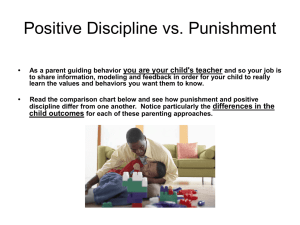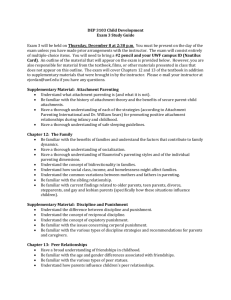CH 10 OUTLINE - Early Childhood: Psychosocial Development
advertisement
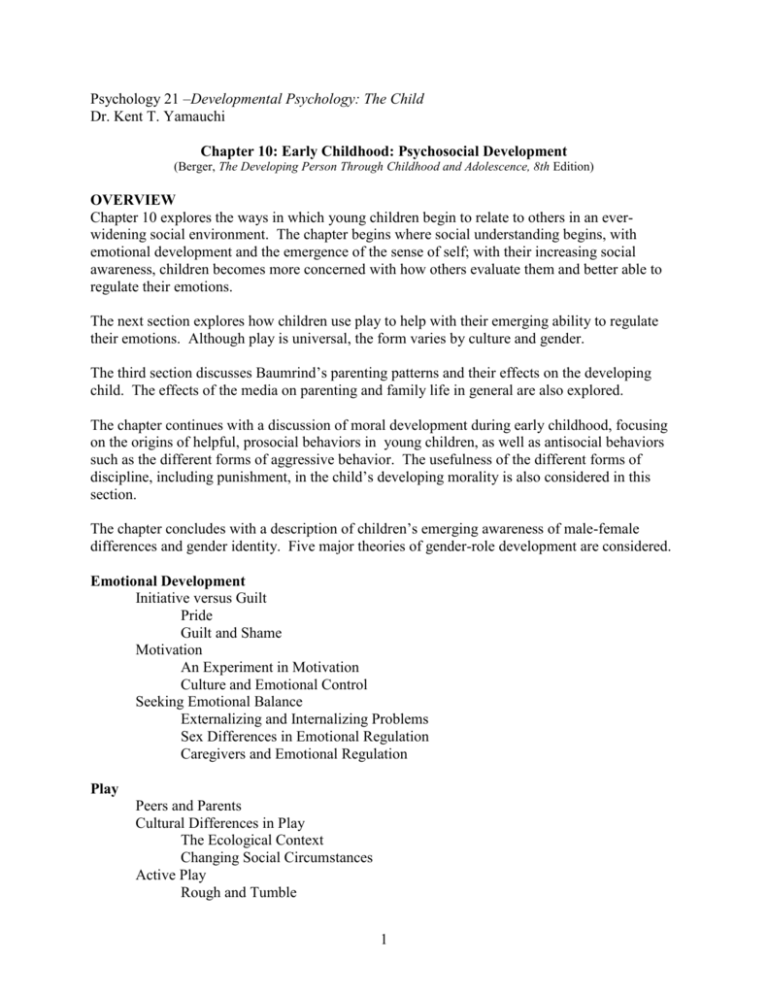
Psychology 21 –Developmental Psychology: The Child Dr. Kent T. Yamauchi Chapter 10: Early Childhood: Psychosocial Development (Berger, The Developing Person Through Childhood and Adolescence, 8th Edition) OVERVIEW Chapter 10 explores the ways in which young children begin to relate to others in an everwidening social environment. The chapter begins where social understanding begins, with emotional development and the emergence of the sense of self; with their increasing social awareness, children becomes more concerned with how others evaluate them and better able to regulate their emotions. The next section explores how children use play to help with their emerging ability to regulate their emotions. Although play is universal, the form varies by culture and gender. The third section discusses Baumrind’s parenting patterns and their effects on the developing child. The effects of the media on parenting and family life in general are also explored. The chapter continues with a discussion of moral development during early childhood, focusing on the origins of helpful, prosocial behaviors in young children, as well as antisocial behaviors such as the different forms of aggressive behavior. The usefulness of the different forms of discipline, including punishment, in the child’s developing morality is also considered in this section. The chapter concludes with a description of children’s emerging awareness of male-female differences and gender identity. Five major theories of gender-role development are considered. Emotional Development Initiative versus Guilt Pride Guilt and Shame Motivation An Experiment in Motivation Culture and Emotional Control Seeking Emotional Balance Externalizing and Internalizing Problems Sex Differences in Emotional Regulation Caregivers and Emotional Regulation Play Peers and Parents Cultural Differences in Play The Ecological Context Changing Social Circumstances Active Play Rough and Tumble 1 Drama and Pretending Challenges for Parents Parenting Styles Baumrind’s Three Patterns of Parenting Authoritarian Parenting Permissive Parenting Authoritative Parenting Table 10.1: Characteristics of Parenting Styles Identified by Baumrind Implications of Parenting Style Cultural Variations Children, Parents, and the New Media Table 10.2: Average Daily Exposure to Electronic Media Importance of Content Family time Moral Development Empathy and Antipathy Aggression Types of Aggression Table 10.2: The Four Forms of Aggression Developmental Patterns Parental Discipline A View From Sciences: Discipline and Children’s Thinking Physical Punishment Psychological Control Social Punishment Becoming Boys and Girls Sex and Gender Theories of Gender Differences Psychoanalytic Theory A Personal Perspective: Berger and Freud Behaviorism Cognitive Theory Sociocultural Theory Epigenetic Theory Gender and Destiny Summary 2
